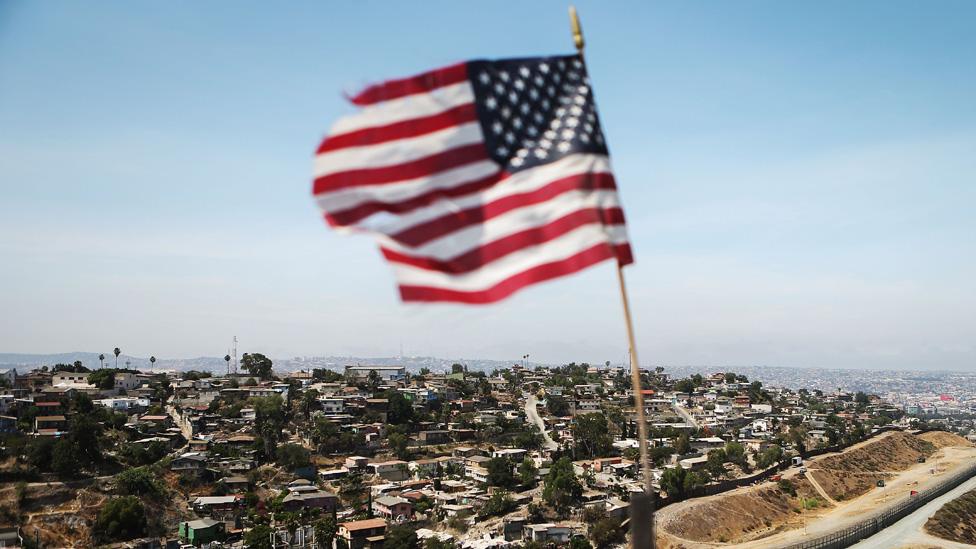Trump official revises Statue of Liberty poem to defend migrant rule change
- Published
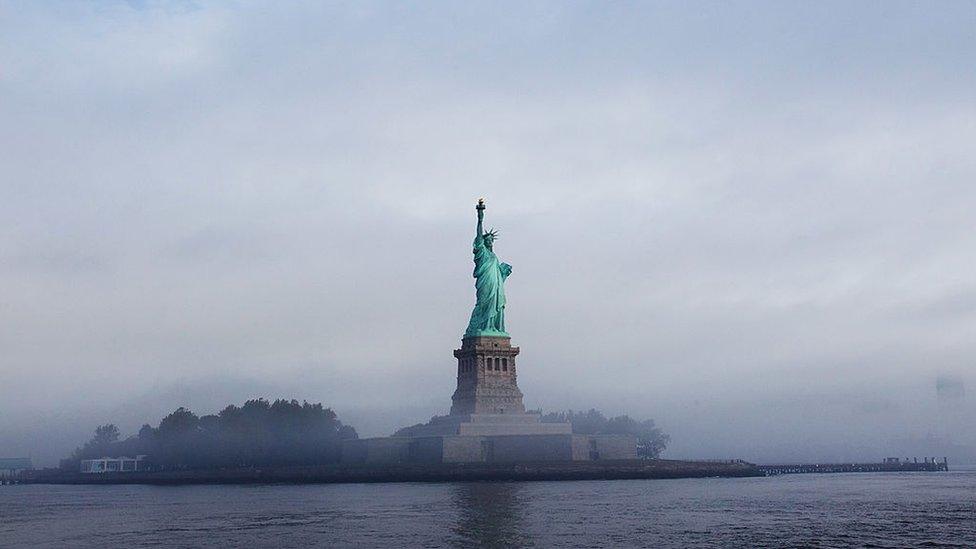
A top US immigration official has revised a quote inscribed on the Statue of Liberty in defence of a new policy that denies food aid to legal migrants.
The head of Citizenship and Immigration Services tweaked the passage: "Give me your tired, your poor, your huddled masses yearning to breathe free".
The official added the words "who can stand on their own two feet and who will not become a public charge".
He later said the poem had referred to "people coming from Europe".
Ken Cuccinelli, the Trump administration's acting head of Citizenship and Immigration Services, announced on Monday a new "public charge" requirement that limits legal migrants from seeking certain public benefits such as public housing or food aid, or are considered likely to do so in the future.
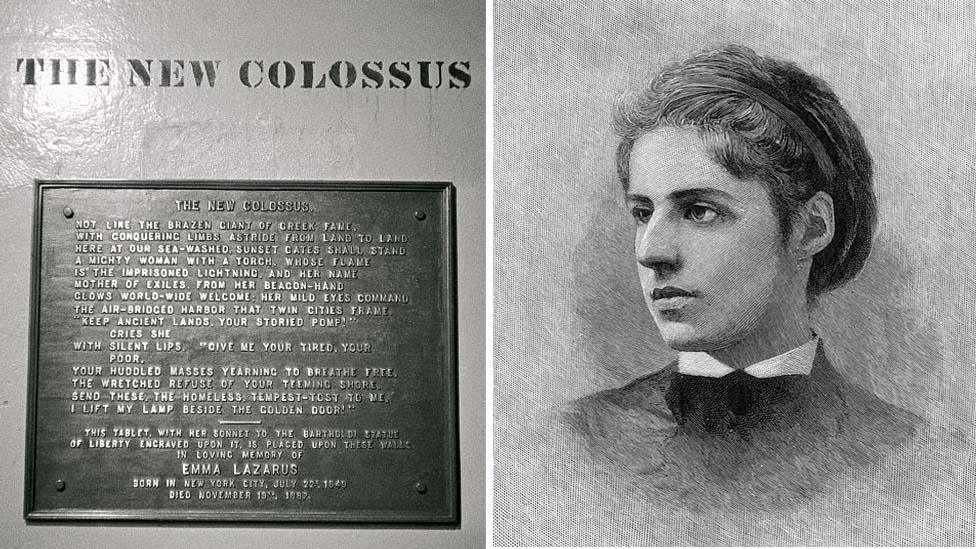
The New Colossus was written by New York-born poet Emma Lazarus in 1883
The new regulation, known as a "public charge rule",, external was published in the Federal Register on Monday and will take effect on 15 October.
The rule change is intended to reinforce "ideals of self-sufficiency", officials said. Critics argue that it will prevent low-income US residents from seeking help.
What did the official say?
On Tuesday, Mr Cuccinelli was asked by NPR whether the 1883 poem titled The New Colossus at the Statue of Liberty still applied.
"Would you also agree that Emma Lazarus's words etched on the Statue of Liberty, 'Give me your tired, give me your poor,' are also a part of the American ethos?" asked NPR's Rachel Martin.
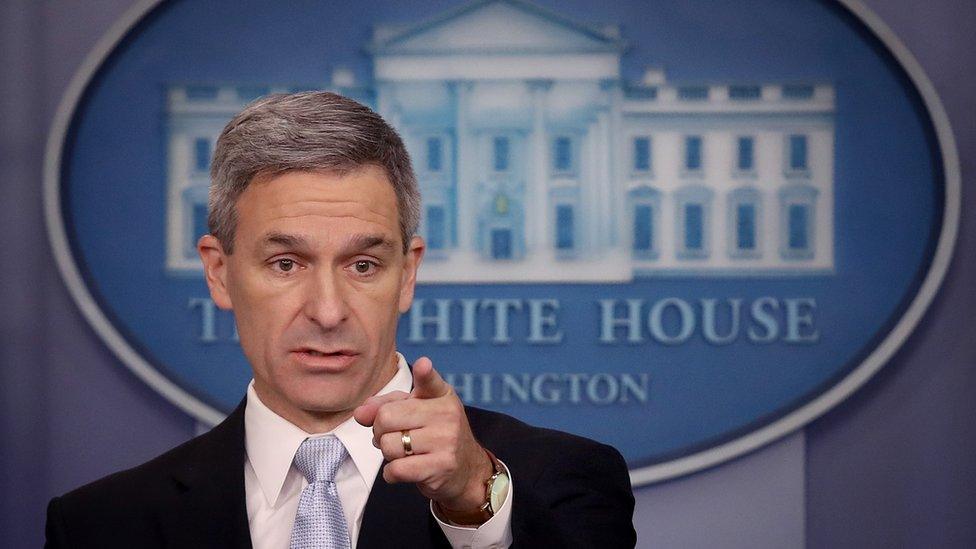
Ken Cuccinelli, the acting head of US Citizenship and Immigration Services
"They certainly are," Mr Cuccinelli responded. "Give me your tired and your poor - who can stand on their own two feet and who will not become a public charge."
"That plaque was put on the Statue of Liberty at almost the same time as the first public charge [law] was passed - very interesting timing," he added.
The actual passage reads in part: "Give me your tired, your poor, Your huddled masses yearning to breathe free, The wretched refuse of your teeming shore. Send these, the homeless, tempest-tost to me, I lift my lamp beside the golden door!"
In the interview, he added that immigrants are welcome "who can stand on their own two feet, be self-sufficient, pull themselves up by their bootstraps, again, as in the American tradition".
After the host asked if the policy "appears to change the definition of the American dream," he said: "We invite people to come here and join us as a privilege.
"No one has a right to become an American who isn't born here as an American."
Top immigration official says public charge rule will not target "any particular group"
Mr Cuccinelli was pressed later on CNN about his comments, and pushed back on claims he was trying to re-write the poem. He insisted he was answering a question and accused people on the left of "twisting" his comments.
Then asked by anchor Erin Burnett about what America stands for, he said: "Of course that poem was referring back to people coming from Europe - where they had class-based societies where people were considering wretched if they weren't in the right class."
The two then discussed their own immigrant ancestry, with Ms Burnett pointing out his rule would have "excluded" her family.
"I'm here because they were allowed in, and I'm an anchor on CNN," she said.
Beto O'Rouke, a Democratic presidential hopeful from Texas, shared a clip from the interview and said the comments show his Trump administration "think the Statue of Liberty only applies to white people".
Allow X content?
This article contains content provided by X. We ask for your permission before anything is loaded, as they may be using cookies and other technologies. You may want to read X’s cookie policy, external and privacy policy, external before accepting. To view this content choose ‘accept and continue’.

Who will be affected by the new rule?
Immigrants who are already permanent residents in the US are unlikely to be affected by the rule change.
It also does not apply to refugees and asylum applicants.
But applicants for visa extensions, green cards or US citizenship will be subject to the change.
Those who do not meet income standards or who are deemed likely to rely on benefits such as Medicaid (government-run healthcare) or housing vouchers in future may be blocked from entering the country.
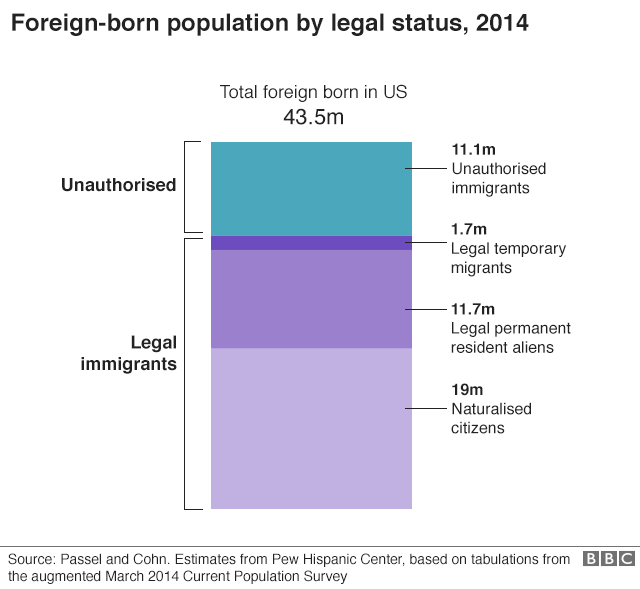
Those already in the US could also have their applications rejected.
An estimated 22 million legal residents in the US are without citizenship, and many of these are likely to be affected.
President Trump has made immigration a central theme of his administration. This latest move is part of his government's efforts to curb legal immigration.
What has reaction been?
The Democratic led House Homeland Security Committee condemned Mr Cuccinelli's revision in a tweet, calling the words "vile and un-American".
"It's clear the Trump Administration just wants to keep certain people out," the committee wrote, calling Mr Cuccinelli "a xenophobic, anti-immigrant fringe figure who has no business being in government".
Others pointed to his background as the attorney general of Virginia, in which he led a conservative campaign against immigration and homosexuality.
Asked about Mr Cuccinelli's remarks on Tuesday, President Trump did not directly respond to the Statue of Liberty quote, but said: "I don't think it's fair to have the American taxpayer pay for people to come into the United States."
"I'm tired of seeing our taxpayer paying for people to come into the country and immediately go onto welfare and various other things.
"So I think we're doing it right."
- Published12 August 2019
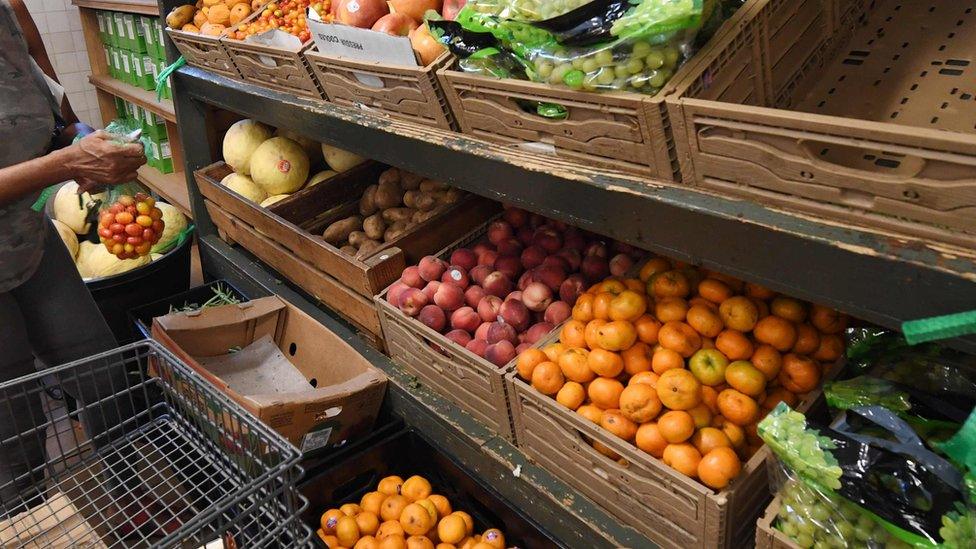
- Published7 July 2019
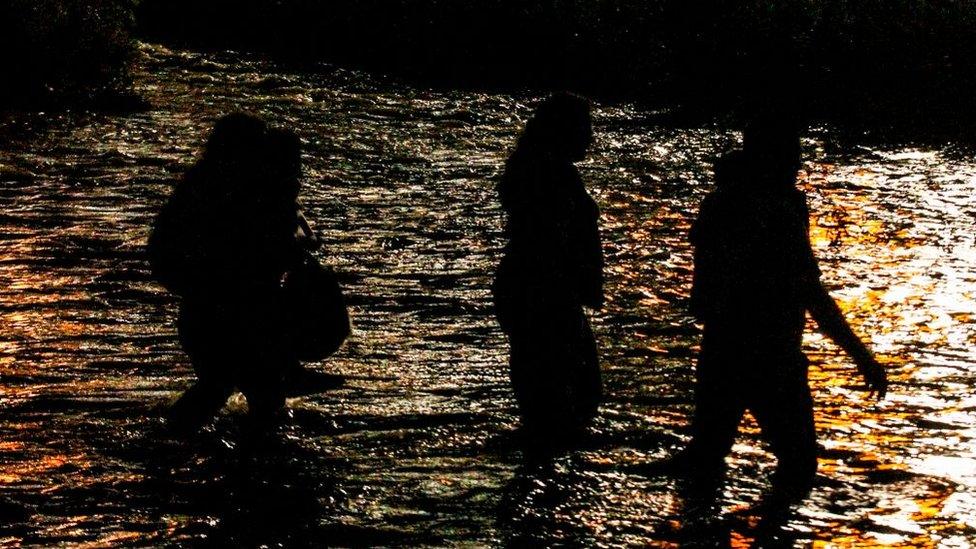
- Published29 November 2018
